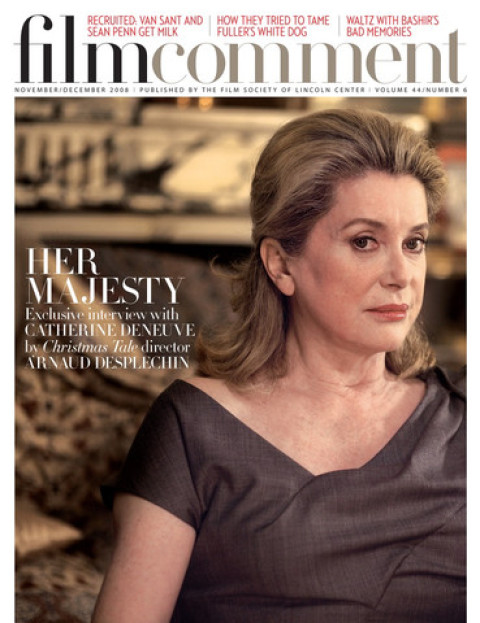
Well before the success of Games of Love and Chance (L’Esquive, 03), which won four Césars, including Best Film and Best Director, Abdel Kechiche had already caught the attention of critics both for his debut, Blame It on Voltaire (00), and as a supporting actor in a handful of films. In particular, the rage and frustration of his performance in Nouri Bouzid’s Bezness (92), as a jobless Tunisian driven to become a prostitute for Europeans, was unforgettable.
That anger, which was submerged beneath the dazzling role-playing and banlieue locutions of his first two films as director, pervades The Secret of the Grain. But it isn’t expressed through his careworn protagonist, Slimane (Habib Boufares), who works in a shipyard, and whose every wrinkle bespeaks the hardness of life in Sète, a Southern coastal town ground down by unemployment.
Kechiche may subscribe to Renoir’s “Everyone has his reasons,” but here he shoots the action with a nervous tension that’s more evocative of Pialat. And as in Pialat, violence breaks out at regular intervals, usually during meals, and the movie waits in anticipation of these eruptions, which transform shots into showcases for the performances of his actors—or rather actresses. For anger always seems reserved for women in Kechiche’s films. The mother of Slimane’s children, Souad (Bouraouia Marzouk), constantly proclaims her contempt for her ex-husband, who is incapable of paying her meager alimony. And his new companion, Latifa (Hatika Karaoui), owner of the modest quayside boarding house where he lives, finds his foot-dragging over making their relationship official harder and harder to put up with.

The circulation of money is rarely shown, but it permeates every conversation. From paying a fine for illegal fishing (threatening a son-in-law’s small business) to the cost of diapers, Secret of the Grain portrays a working class heading to the poor house, yet still managing to keep its head above water and, most of all, preserve family ties. Slimane’s plan to buy a run-down boat and turn it into a restaurant specializing in couscous fish dishes (the French title, La Graine et le mullet, translates as “Grain and Mullet”; in England the film was released as Couscous) is nothing if not a family enterprise. He enlists his sons as jacks-of-all-trades, Souad as head chef, and, as manager—to the great displeasure of his biological daughters—Latifa’s daughter Rym (Hafsia Herzi, whose performance won her the best actress prize in Venice last year), whom he considers his adopted child.
In France, Kechiche is often compared to Marcel Pagnol: both undoubtedly share a rare understanding of the degree to which daily speech, much more than language, forms the basis of community. That said, the Pagnolian putdowns (“You’re breaking my heart. Really, you’re breaaaaking my heaaaart…”) have little to do with how The Secret of the Grain works this. Speech, for Kechiche, establishes a democracy of talking and listening (one shot for the speaker, one for the listener) that guides the camera and the editing, which would otherwise slide into a chaos of jump cuts. And above all, speech, is performative.
Appearances can change in a flash (there’s a marvelous scene in which Rym sheds her low-class outfit and transforms herself into an executive businesswoman), but success or failure is often determined by the power of speech. The act of convincing people to change their minds is a key motif, whether it be persuading a banker to approve a loan or scolding a toddler who refuses to use the potty.
But when words reach the limits of their power, the body takes over. At the end of the film, Rym, with the energy of a desperate dime-store Scheherazade, performs a belly dance for the opening-night clientele to save the day after a kitchen catastrophe. But if victory in Kechiche’s films always belongs to the women, in The Secret of the Grain, it’s a bitter one. The earthy magnetism of Rym’s undulating belly will quell the impatient grumbling of the mesmerized customers for a few minutes at least.








